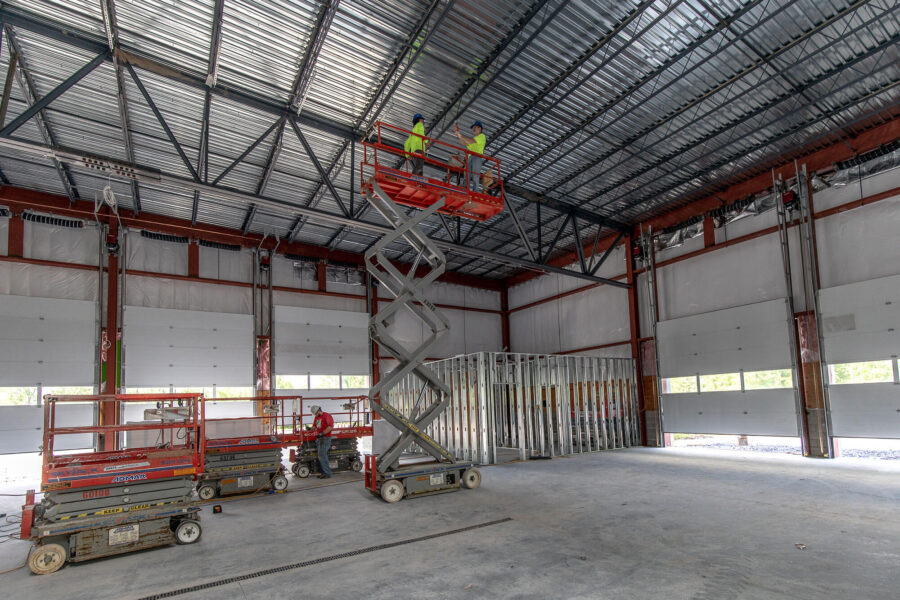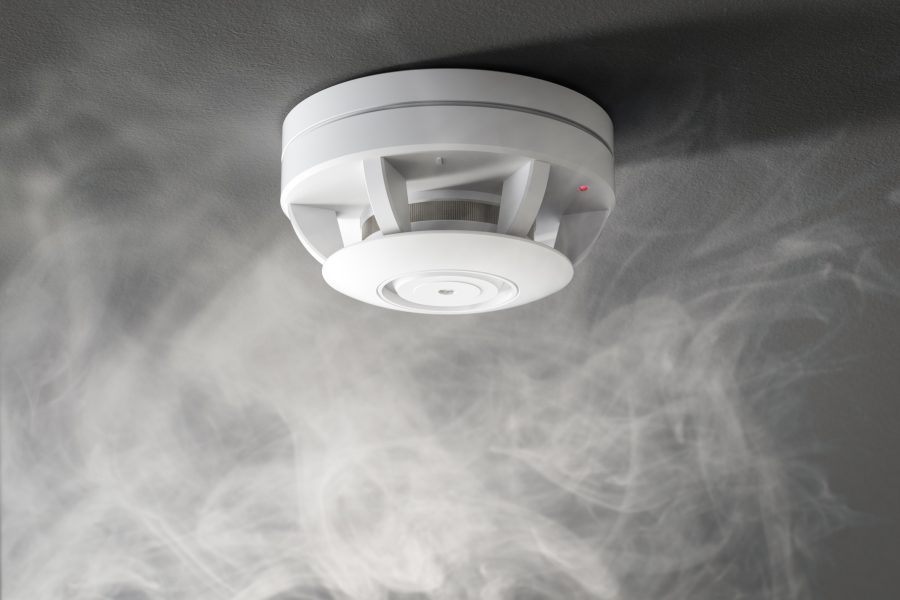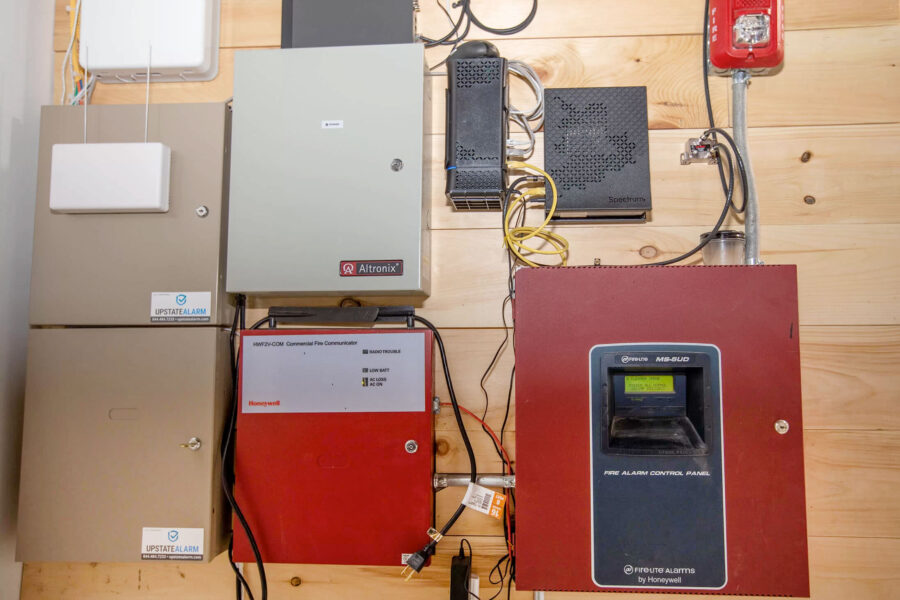Differences Between Residential vs Commercial Electricians: Everything You Need to Know
Do you need wiring work done in your home? Are you starting a new business and need a commercial electrical contractor? Or are you working on an industrial project that requires specialist attention? If so, it’s important to know the difference between residential vs commercial electricians, and commercial vs industrial electricians. Each type of electrician has their own area of expertise, and uses different tools, equipment and materials in their work. That’s why it’s crucial to hire the right type of electrician for your specific needs. We’ll take a closer look at the differences between residential, commercial and industrial electricians – so you can be sure to get the right one for the job!

Residential electricians
Residential electricians are trained and licensed to work on electrical systems in private homes, apartments, condos and townhouses. They typically install, maintain and repair electrical wiring, outlets, light fixtures and other equipment in residential properties. In some cases, they may also work on larger projects such as remodeling or adding an addition to a home.
Residential electricians can wire:
- New construction homes
- Remodels & home additions
- Outlets, switches & fixtures
- Smoke detectors & security systems
Typical job responsibilities of a residential electrician:
- Installing, repairing and maintaining electrical wiring, outlets, light fixtures and other equipment in residential properties.
- Troubleshooting electrical problems.
- Providing advice to homeowners on the best type of electrical system for their needs.
- Following local building codes and regulations.
Training required for a residential electrician:
Most residential electricians have a high school diploma or equivalent. They then complete an apprenticeship program, which typically lasts four years. During their apprenticeship, they receive on-the-job training from experienced residential electricians. They also learn safety procedures and how to use tools and equipment properly. After completing their apprenticeship, residential electricians must obtain a license from their state or local municipality.
Licensing requirements for a residential electrician:
Residential electricians must be licensed in most states. To obtain a license, they must pass an exam that tests their knowledge of the National Electrical Code (NEC), local building codes and safety procedures.
Commercial electricians
Commercial electricians are trained and licensed to work on electrical systems in businesses and other commercial properties. These can include office buildings, retail stores, warehouses and restaurants. They typically install, maintain and repair electrical wiring, outlets, light fixtures and other equipment in office buildings, retail stores, warehouses and other commercial buildings. In some cases, they may also work on larger projects such as remodeling or adding an addition to a commercial building.
Commercial electricians can wire:
- New construction businesses & office buildings
- Remodels & additions to businesses & office buildings
- Outlets, switches & fixtures
- Smoke detectors & security systems
Typical job responsibilities of a commercial electrician:
- Installing, repairing and maintaining electrical wiring, outlets, light fixtures and other equipment in commercial buildings.
- Troubleshooting electrical problems.
- Providing advice to businesses on the best type of electrical system for their needs.
- Following local building codes and regulations.
Training required for a commercial electrician:
A certified commercial electrician requires more technical training than a certified residential electrician. They must have a high school diploma or equivalent and complete an apprenticeship program, which typically lasts four years. During their apprenticeship, they receive on-the-job training from experienced commercial electricians. They also learn safety procedures and how to use tools and equipment properly. After completing their apprenticeship, commercial electricians must obtain a license from their state or local municipality.
Licensing requirements for a commercial electrician:
Commercial electricians must be licensed in most states. To obtain a license, they must pass an exam that tests their knowledge of the National Electrical Code (NEC), local building codes and safety procedures.
Industrial electricians
Industrial electricians are trained and licensed to work on electrical systems in factories, power plants, manufacturing plants and other industrial settings. They typically install, maintain and repair electrical wiring, outlets, light fixtures and other equipment in these types of buildings. In some cases, they may also work on larger projects such as remodeling or adding an addition to an industrial building.
Industrial electricians can wire:
- New construction factories & manufacturing plants
- Remodels & additions to factories & manufacturing plants
- Outlets, switches & fixtures
- Smoke detectors & security systems
Typical job responsibilities of an industrial electrician:
- Installing, repairing and maintaining electrical wiring, outlets, light fixtures and other equipment in industrial buildings.
- Troubleshooting electrical problems.
- Providing advice to businesses on the best type of electrical system for their needs.
- Following local building codes and regulations.
Training required for an industrial electrician:
A certified industrial electrician must have more technical training that residential or commercial electricians. Most industrial electricians have a high school diploma or equivalent. They then complete an apprenticeship program, which typically lasts four years. During their apprenticeship, they receive on-the-job training from experienced industrial electricians. They also learn safety procedures and how to use tools and equipment properly. After completing their apprenticeship, industrial electricians must obtain a license from their state or local municipality.
Licensing requirements for an industrial electrician:
Industrial electricians must be licensed in most states. To obtain a license, they must pass an exam that tests their knowledge of the National Electrical Code (NEC), local building codes and safety procedures.
Tools used by electricians
Residential, commercial and industrial electricians use a variety of tools and equipment in their work. Some of the most common tools they use include:
- Multimeter: A device used to test electrical circuits for voltage, current and resistance.
- Wire strippers: A tool used to strip the insulation off of electrical wires.
- Cable cutter: A tool used to cut electrical cables.
- Hole saw: A tool used to make holes in walls for electrical outlets and switch boxes.
- Pipe bender: A tool used to bend pipes for electrical conduit.
Electrical compliance standards
Electrical compliance standards are extensive for each type of electrician. These standards are in place to protect both the electricians and the people they work with or around. The three main compliance standards are:
- The National Electrical Code (NEC): The NEC is a set of national standards for electrical work. It is updated every three years by the National Fire Protection Association (NFPA).
- Local building codes: Local building codes are set by each city or county and cover a wide range of topics, including electrical work.
- OSHA safety standards: The Occupational Safety and Health Administration (OSHA) is a federal agency that sets safety standards for the workplace. Electricians must follow these standards to protect themselves and those around them from potential injuries.
Residential electricians must follow the NEC and local building codes. Commercial electricians must follow the NEC, local building codes and OSHA safety standards. Industrial electricians must follow the NEC, local building codes, OSHA safety standards and NFPA 70E (Standard for Electrical Safety in the Workplace).
The NEC covers a wide range of topics related to electrical work, such as wiring methods, materials and equipment.
Local building codes cover specific requirements that may be different from the NEC. For example, some local codes may require residential electricians to install ground fault circuit interrupters (GFCIs) in kitchens and bathrooms. Some local codes may require commercial electricians to install arc fault circuit interrupters (AFCIs) in office buildings. Some local codes may require industrial electricians to install ground fault circuit interrupters (GFCIs) in factories or warehouses.
OSHA safety standards apply to all aspects of the job, from using proper personal protective equipment (PPE) to working safely with electrical equipment.
Wiring methods
- The most common wiring method used in residential electrical work is non-metallic sheathed cable (NM cable). NM cable is made of two or more insulated wires, a bare ground wire and a plastic sheath. The most common type of NM cable used in residential electrical work is Romex.
- The most common wiring method used in commercial electrical work is electrical metallic tubing (EMT). EMT is a type of conduit that is made of thin-walled metal tubing. It is typically used to protect electrical wires from damage.
- The most common wiring method used in industrial electrical work is flexible metal conduit (FMC). FMC is a type of conduit that is made of flexible metal tubing. It is typically used to protect electrical wires in high-temperature or high- vibration environments.
Load demands
Residential electricians typically work with 120-volt circuits. Commercial electricians typically work with 240-volt circuits. Industrial electricians typically work with 480-volt, 600-volt or higher circuits.
Energy needs
Residential electricians typically work with single-phase electrical systems. Commercial electricians typically work with three-phase electrical systems. Industrial electricians typically work with three-phase or four-phase electrical systems.
Materials used
The type of materials an electrician uses also depends on the type of building they are working in. Residential electricians typically use NM cable and EMT conduit while commercial electricians typically use EMT conduit and FMC conduit. Industrial electricians, however, typically use FMC conduit and armored cable.
Residential electricians typically work with 120-volt circuits while commercial electricians work with 240-volt circuits. Industrial electricians, on the other hand, typically work with 480-volt, 600-volt or higher circuits.
When should they be hired?
Residential electricians should be hired for projects such as installing new outlets, wiring a new home or remodeling an existing home. Commercial electricians should be hired for projects such as installing new lighting fixtures, wiring a new office building or remodeling an existing office building. Industrial electricians should be hired for projects such as installing new machinery, wiring a new factory or remodeling an existing factory.
Hiring the right type of electrician for your project is important. Be sure to ask questions and get referrals before hiring an electrician.
Significant differences between the types of electricians
As you can see, there are significant differences between residential, commercial and industrial electricians. It’s important to hire the right type of electrician for your project. A residential electrician cannot always do the work of a commercial electrician and vice versa. Make sure to ask questions and get multiple bids before hiring an electrician. Be sure to specify that you need a residential, commercial or industrial electrician for your project.
If you’re not sure, it’s always a good idea to consult with a professional. The experienced team at Douglas Electric can help you determine the best type of electrician for your needs and make sure that your project is completed safely and up to code. Contact us today to learn more.
Related Posts

The Cost of Commercial Fire Alarm System Installation: A Comprehensive Guide

Do You Need an Electrician for Smoke Detector Installation?

